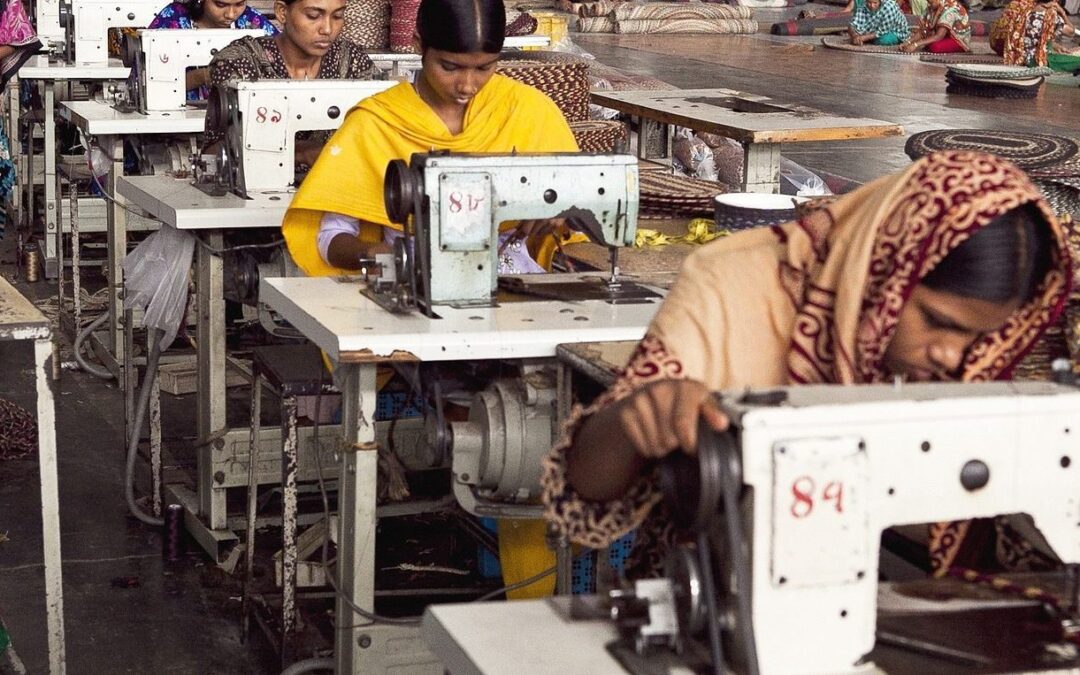The July Revolution requires an introspection regarding how the existing structural issues in the economic sphere, among other catalysts, facilitated the urge for change in the political sphere. This article will particularly look into the labor market challenges that have been requiring reforms and being consistently overlooked for the past decades.
The most important issue in the labor market is that most of the jobs are informal. This practice allows the owners to exploit the workers, by denying them of the rights that a formal contract would allow. On the other hand, the blue-collar jobs that actually allow formal contracts, sometimes do not abide by relevant laws. So, the people under formal contract also face exploitation. Since the government jobs strictly adhere to the formalities of a contract, for many, it is the only suitable option, even if they are able to get higher pay in private jobs.
In this regard formal contracts should be mandated, incorporating fundamental agreements between workers and employers. Such contracts should include compensation for damages, overtime pay, health insurance, and post-employment benefits like pensions. While workers are entitled to casual and sick leave, as well as maternity benefits, these rights are frequently violated. If formal contracts cannot be mandated, it should be the case that the rights of the workers are universally accepted and enforced.
Another market failure in the labor market in Bangladesh comes in the form of hiring practice. In fact, the match that ignited the fire of the revolution was an unfair hiring mechanism, the quota system inherent in the government hiring process. It was often the case, that people from the incumbent party would get hired in the place of relatively qualified candidates. The fall of government revealed cases where qualified candidates were not allowed to join government jobs due to their political allegiance. This type of injustice also spilled into the private sector, where nepotism and partial hiring was rife.
The government should completely overhaul its practice of hiring. Systems like BCS, which were put in place by the British as a discriminatory practice and way of oppression towards the local people, needs to be abolished. Instead, a dynamic, need-based hiring system, where skills and qualifications of the individual, commensurate with the position, should be prioritized. Departments of the government would independently or with the assistance of a hiring entity, recruit people according to their specialization and relevant knowledge on the subject matter.
Wage settlements remain one of the most contentious issues in the labor market. In December 2023, the minimum wage for the garment industry, the largest employer in the manufacturing sector, was adjusted to 12,500 BDT—a 56% increase, but far short of the 188% demanded by workers’ unions. Similarly, the minimum wage for tea workers was set at just 170 BDT per day, against a demand for 300 BDT. Given the current economic environment, these wages are grossly inadequate and reflect a systemic bias favoring owner over workers.
The Minimum Wages Board currently revises wages every five years. It is to be comprised of-
(a) Chairman, (b) a neutral member, (c) one member representing the owners and (d) one member representing the workmen. For the purpose of carrying out the duties mentioned in section 139, the wages board shall also include the following members- (a) One member representing the proprietors of the industry concerned. (b) one member representing the workers engaged in the industry concerned.
Currently the board comprises of a judge as a chairman, a government secretary who represents the owners, a labor representative loyal to the recently ousted, and a professor from the Department of International Business at Dhaka University. To ensure fairness, a reform is needed to establish a wage commission that includes all relevant stakeholders. Instead of a generalized body, this commission could adopt a modular system tailored to different industries. It should employ permanent specialists and part-time consultants with industry-specific knowledge.
Safe working conditions are a fundamental right, but in Bangladesh, they are often overlooked. Although the Rana Plaza disaster in 2013 prompted some safety improvements in the garment sector, other industries continue to face high accident rates. The construction and shipbuilding sectors are particularly hazardous, with 126 and 13 worker deaths per year on average, respectively, between 2013 and 2023.
Reforms must prioritize worker safety. The existing safety measures in the 2006 Bangladesh Labor Act need to be strictly enforced. Regular safety inspections and penalties for non-compliance would compel management to adhere to safety standards. A comprehensive safety guideline, tailored to the unique demands of various industries, should be formulated. Additionally, a formal compensation mechanism for work-related accidents is essential to replace the current ad-hoc system.
In 2023, during the garment workers’ strike for fair wages, between 1,000 to 5,000 workers were laid off, despite legal protections on paper. Section 195 of the 2006 Labor Act prohibits new hires during a strike unless it’s necessary to prevent serious damage to machinery. Section 211 enshrines the right to strike, while Section 20 outlines the right to notification and compensation for dismissal. However, these laws are often disregarded, especially in the informal sector, where workers are dismissed without notice or compensation. Reforms should clarify the definition of a legal strike to avoid ambiguity.
Existing labor laws in Bangladesh offer a framework for protecting workers’ rights, but these laws are not enforced uniformly. Factories as-well-as other offices, often lack childcare facilities, forcing parents to spend a significant portion of their earnings on sub-standard daycare, despite Section 94(1) mandating such provisions in establishments employing 40 or more female workers.
Effective reform requires the stringent enforcement of existing laws. Favoritism toward industry owners must be curbed, and the rights of both blue-collar and white-collar workers must be protected. While unionization and labor activities should not infringe on the rights of business owners, the current imbalance that disproportionately favors employers must be addressed to create an equitable workplace.
By addressing wage disparities, ensuring worker safety, and strictly enforcing labor laws, Bangladesh can establish a fairer and more just labor market that serves the interests of all its citizens.
This Article was first published in the October, 2024 edition of the Thinking Aloud




RECENT COMMENTS